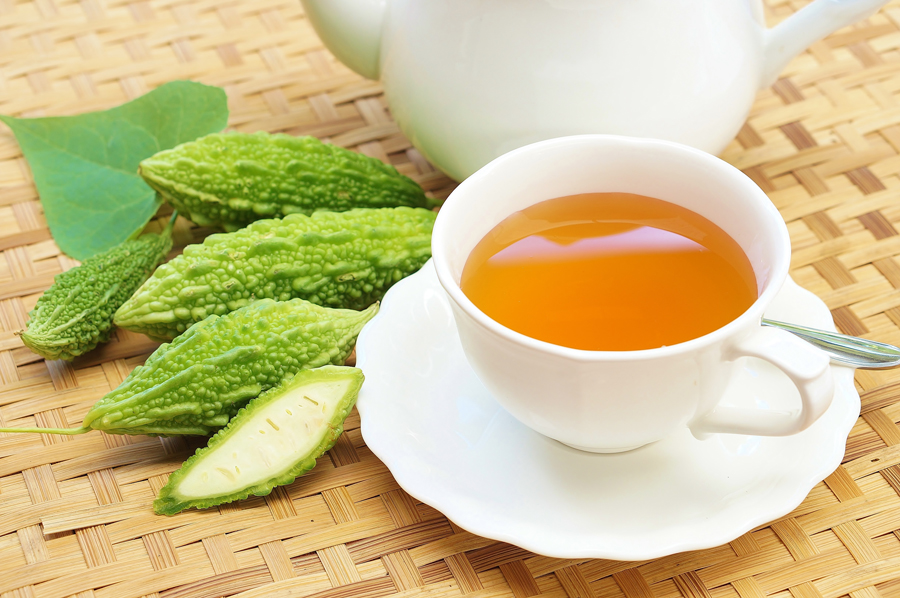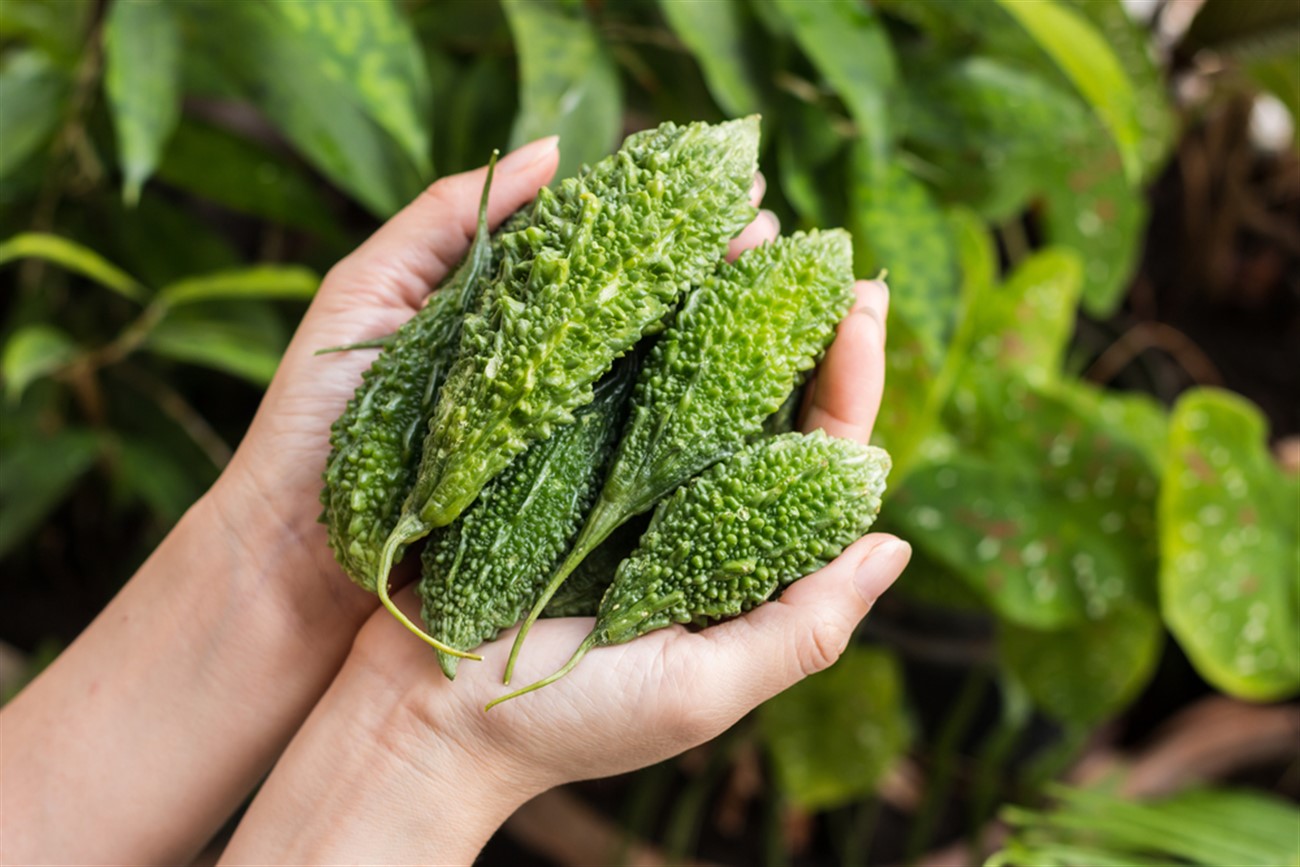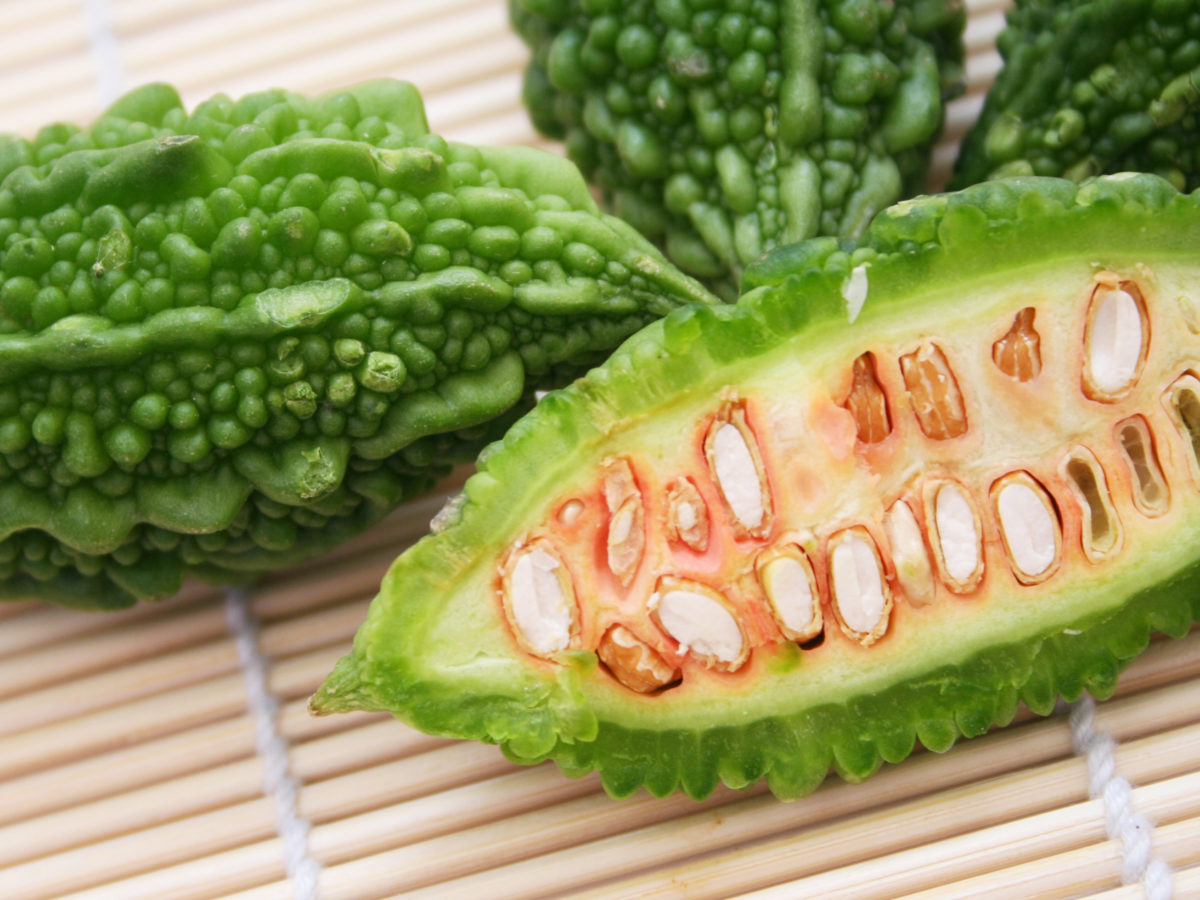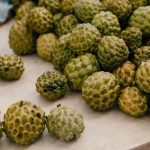
Benefits and Properties of Bitter Melon Tea
The wild species Momordica charantia or bitter melon is a tropical and subtropical vine that grows in the tropics and subtropics. Within the Cucurbitaceae family, with edible fruits, it is the most bitter of the vegetables. Although it is a species native to the tropics, it is still unclear from which country its true origin is.
Due to global deforestation of forests, Momordica is being planted in India, Pakistan, South Africa, South East Asia, China, Africa, and the Caribbean. This interest in planting this species is also due to the high quantity of beneficial medicinal properties for the ancillary treatment of various diseases. In Ethnic medicine, it is used as an antibiotic. While in Turkish medicine, it is applied in the treatment of stomach ulcers.
Bitter Melon Tea contributes to the control of blood sugar and detoxification of the body. Learn about the benefits and properties of this powerful antioxidant tea. Enjoy your reading!

Benefits of Bitter Melon Tea
Known as Nigagori in China and Ku Gua in Japan, the bitter melon is a climbing plant with medicinal properties and a rather unpleasant smell. This species, defined by many as “weeds”, develops flowers with yellow and white colour. The most consumed part of Momordica charantia is the fruit, which when ripe has a yellow and red colour and a sweet taste. However, before ripening it has a bitter taste.
Currently, this Asian plant is one of the most appreciated and consumed in Africa and the Americas. The bitter melon contains low quantity of calories, however, it is enriched in fibres. Due to its strong nutritional component, Momordica helps to improve the symptoms of some serious diseases. This medicinal action is due to its hypoglycaemic, healing, astringent, anti-inflammatory, antiviral, antimicrobial and aphrodisiac properties (found in the roots).
Bitter melon tea is popularly consumed to control blood sugar levels (glycaemia or diabetes). This action is because the melon contains active ingredients and natural substances that stimulate the pancreas to produce insulin and the liver to store it. At the same time, the reduction of glucose absorption at the intestinal level through its purifying effect.
Besides being used to balance blood glucose levels, bitter melon tea can contribute to the improvement of blood circulation, the elimination of kidney stones, the slimming process and increased immunity. It can also be used as an auxiliary solution in the treatment of womb, haemorrhoids (piles), and diarrhoea.
In the Caribbean, bitter melon tea is used for fever relief. Globally, this powerful detoxifying tea is used for female hormone regulation, cholesterol, and blood pressure. This medicinal potential may promote the elimination of substances harmful to the proper functioning of the body. Bitter melon tea may be an excellent ally in relieving stomach discomfort caused by excessive food consumption.
As for its benefits for skin health, Momordica charantia helps to reduce skin infections. According to recent scientific studies, proteins extracted from the bitter melon may help block the development of cancer cells. However, this is still under research.
You can consume bitter melon tea to relieve gastrointestinal gas and coughing up phlegm. Taking this tea is advised against for pregnant women, breastfeeding women and toddlers. It should also be avoided by people suffering from hypoglycaemia or low blood sugar. For effective results, a healthy lifestyle is recommended.

International Bitter Melon Names
Bitter Melon may bear the following international names: Melão de São Caetano (PT), Bitterkomkommer, Sopropo, Karaila, Balsempeer (NL), Balsamka, Przepękla Ogórkowa (PL) Karvaskurkku (FI), Balsambirne, Bittergurke, Balsamapfel (DE), Karella-kibekurk (ET), Horka okurka (CZ), Momórdiga (ES), Balzsamkörte (HU), Amargo Agurk, Grenka kumara (SL), Bittergurka (SE), Beiskjugúrka (IS) e Melone Balsamfrukt.
Until the next article!








Sorry, the comment form is closed at this time.